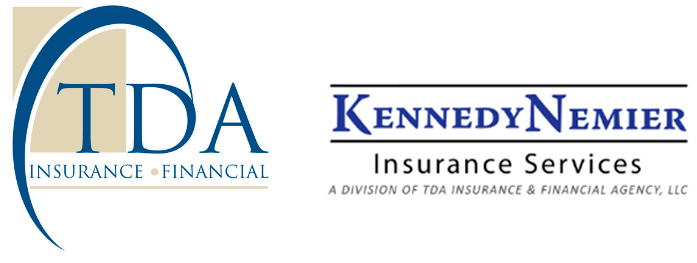
Preparing for Major Changes: What You Need to Know
Big changes are on the way for Michigan employers starting February 21, 2025. New legislation will impact paid sick leave policies and wage structures, and it’s critical for businesses to prepare. Whether you own a small business or manage a larger organization, understanding these changes and how they will affect your operations is essential. Here’s what you need to know.
What’s Changing in Michigan Employment Law?
Stating February 21st, 2025, Michigan will implement two major changes that will affect employers across the state:
- Mandatory Paid Sick Leave: The Earned Sick Time Act (ESTA) will require businesses to offer paid sick leave to all employees, with no exceptions based on company size.
- Increase Minimum Wage & Changes to Tipped Wages: The minimum wage will rise significantly, and the tipped wage will gradually be eliminated.
Both of these changes will have far-reaching impacts on employers, and businesses will need to adapt to comply with the new regulations. Understanding these shifts is key to avoiding penalties or legal issues.
Key Provisions of the Earned Sick Time Act (ESTA)
Without any legislative amendments, the Earned Sick Time Act (ESTA) will go into effect with the following key provisions:
Mandatory Paid Sick Leave: All employees, including part-time, full-time, seasonal, temporary workers, and potentially independent contractors must be granted 72 hours of paid sick leave annually. Employees can use this time intermittently and without any advance notice, which may affect business staffing.
Carryover of Unused Time: All unused sick leave must carry over from year to year, with no cap. Employers will need to manage and track these balances over time. If an employer chooses to provide a combined bank of PTO and Earned Sick Time hours that exceeds the 72 hours required and front-loads that for the year, the carryover provision is not required.
Legal Considerations: ESTA could open the door for litigation, allowing employees to challenge decisions relating to sick leave. The law also includes rebuttable presumptions, which may make it more difficult for businesses to defend personal actions.
In addition, the tipped minimum wage will be phased out, affecting industries like restaurants and hospitality, where tips play a significant role in workers’ earnings.
Detailed Provisions from the Earned Sick Time Act (ESTA)
Employers/Employees: All employers, except the federal government, must provide a level of paid sick leave. An “employer” is defined as any person or entity with one or more employees. Certain Individuals, such as unpaid trainees or interns, and those employed under the Youth Employment Standards Act, are excluded.
Small Business Definition: A “small business” is defined as an employer with 10 or fewer employees working for compensation during a given week. This includes part-time, full-time, and temporary employees, including those from a staffing agency.
Effective Dates: Small businesses do not need to allow employees to accrue earned sick time or provide paid earned sick time until October 1st, 2025. For all other employers, accrual begins on February 21st, 2025.
Notice Requirements: Employers have 30 days from the effective date to provide written notice to employees about the amount of sick time to be earned, how the year will be calculated, terms of use, prohibition of retaliatory action, and the right to file a complaint.
Accrual of Paid Sick Time: Employees will accrue one hour of paid sick leave for every 30 hours worked, up to 72 hours per year for large employers. Small businesses can limit accrual to 40 hours per year.
Use of Paid Sick Time: Employees can use the time in increments or the smallest increment that an employer’s payroll system uses. Employers can request medical documentation after three consecutive days off and must cover any out-of-pocket costs for obtaining this documentation.
Carryover of Unused Sick Time: If sick time is accrued based on hours worked unused leave can carry over from year to year. Large employers can limit the use of carried-over time to 72 hours per year, while small businesses can limit it to 40 hours per year.
Paid Time Off Banks: Employers can use paid time off banks (combined vacation and sick leave) if they provide at least the same benefits as ESTA. If an employee uses all paid time off for vacation, no additional paid sick time is required.
Employer Requirements: Employers must keep timekeeping records for three years. Paid leave under the Act cannot be considered an absence under an attendance policy. If an employee uses all paid time off for vacation, no additional paid sick time is required.
Recourse for Violations: Claims must be filed with the Wage and Hour Division within three years of the alleged violation. The prior “rebuttable presumption” of violation for personnel actions within 90-days of sick time issues has been eliminated. Employees can no longer file a private lawsuit; their only recourse is to file a claim with the Wage and Hour Division.
As Part of the business community, TDA Insurance is actively monitoring these legislative developments and supporting efforts to amend the law in ways that will benefit businesses while still protecting employees’ rights.
What Employers Need to Know About the Minimum Wage Changes
The minimum wage in Michigan is set to rise significantly over the next few years. Here’s what employers need to know:
- 2025: Minimum Wage = $12.48; tipped wage = $5.99
- 2026: Minimum Wage = $13.29; tipped wage = $7.97
- 2027: Minimum Wage = $14.16; tipped wage = $9.91
- 2028: Minimum Wage = $14.97; tipped wage = $11.97
- 2029: Minimum Wage = $15 (adjusted for inflation)
The shift in tipped wages will increase the overall labor costs for businesses, and for tipped employees, it could mean a decrease in total earnings. If this change applies to your business, it’s important to prepare for the impact on both pricing and staff compensation.

Understanding EPLI Coverage
As Michigan employers face these significant changes to employment laws, it’s also a good time to review your business’s insurance policies. One critical type of coverage that every employer should consider is Employment Practices Liability Insurnace (EPLI).
EPLI provides protection against claims made by employees related to employment practices, such as wrongful termination, discrimination, harassment, retaliation, and violations of employee rights, including to those related to the new Earned Sick Time Act and the increase in minimum wage. With the implementation of these new laws, businesses are more likely to face legal challenges from employees, whether it’s disputes over paid sick leave usage or issues related to wage changes.
The importance of EPI is heightened as businesses navigate the complexities of these new regulations. If an employee files a lawsuit alleging a violation of the new sick leave policies, an EPLI policy can help cover the legal fees, settlements, and damages, helping to protect your business from the financial strain of legal battles.
In addition, given the increased potential for litigation under ESTA, now is the time for businesses to review their EPLI coverage to ensure they have adequate protection in place. This type of coverage is crucial for mitigating risks associated with employment law violations, safeguarding your business against costly legal challenges, and providing peace of mind as you adapt to the changing employment landscape in Michigan.
Additional EPLI Endorsements
- Third-Party EPLI Coverage
- What it is: This endorsement covers claims made by third parties, such as customers, vendors, or business partners, who allege discrimination, harassment, or retaliation by employees
- Why it’s Different: Standard EPLI policies typically only cover claims made by employees against the employer. Third-party coverage is an add-on that provides additional protection for business interacting with the public or other external parties.
- Additional Limit for Defense Costs
- What it is: This endorsement provides extra coverage specifically for legal defense costs, separate from the policy’s standard limit. This includes costs for lawyers, expert witnesses, and other legal fees associated with defending an EPLI claim.
- Why it’s Different: A typical EPLI policy may have defense costs included within the overall policy limits. With this endorsement, defense costs are covered above and beyond the standard limit, which can be critical in higj-cost legal cases.
- Wage & House Claims
- What it is: Covers claims related to violations of wage and hour laws, such as unpaid overtime, minimum wage violations, or class-action lawsuits for improper compensation practices.
- Why it’s Different: Many standard EPLI policies exclude wage and hour claims, considering them to be part of separate employment law coverage. This endorsement specifically addresses the growing number of claims related to wage and hour disputes.
- Immigration Claims
- What it is: Provides protection for businesses against claims that arise due to alleged improper hiring or treatment of employees based on immigration status or related policies.
- Why it’s Different: Standard policies typically don’t cover immigration-related claims, but this endorsement adds coverage for risks related to discrimination or wrongful termination based on an individual’s immigration status.
- Workplace Violence
- What it is: Coverage for incidents of workplace violence, including physical harm, threats, or intimidation by employees or outsiders. This may also cover counseling and support for affected employees.
- Why it’s Different: Workplace violence coverage is often excluded from standard commercial packages or BOPs. This endorsement helps businesses manage the aftermath of violent incidents, offering both legal and employee support services.
Stay Informed & Take Action Now
The clock is ticking toward February 21st, and businesses need to prepare for the coming changes. TDA Insurance is committed to heling our clients understand and navigate the new laws, and we encourage you to stay informed and get involved.
For more information or personalized assistance with adjusting your policies, please contact TDA Insurnace. We’re here to support you through these transitions and ensure your business remains compliant with Michigan’s evolving employment laws.
📞 248-347-3630
🌐 www.tdainsurance.com
